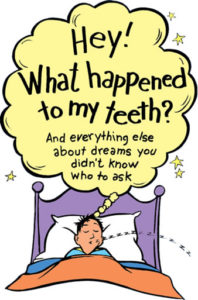Dream Interpretation
Why is dream interpretation important?
Dreams really are, in the truest sense, a doorway: to greater self-awareness, knowledge, success, and the possibility of a rich, full life. How do you open and walk through that door? There is an actual pathway, with clearly delineated steps, that can take you from wishful thinking about dreams to a reliable dream habit.
Try our professional dream interpretations. You’ll find your previously mysterious, invisible inner life can be revealed through your dreams on a regular basis to assist you in many useful ways. Get a free dream interpretation now. Ask 1 free dream question with any dream interpreter you try!
Understanding how dreams function
You can engage with the dream process better after you have some ideas about what dreaming does. Scientists write dreams off as the haphazard firing of neurons in the brain, but when you work deeply with dreams over time, you begin to understand them quite differently, seeing their spiritual roots.
The following sections will help stretch your context for dreaming and inspire you about their vital importance in maintaining a healthy and happy life.
I have been deciphering dreams for 30 years. There are classic or archetypal dreams in dream interpretation which come up time and again. Below are some of the most frequently occurring dreams and my viewpoint on them. What follows is only a reflection of patterns of recognition that other dreamers have had in exploring similar dreams.
Remember, your own “aha!” of recognition is the only reliable indication that these common, archetypal meanings actually apply to your dream.
The best way to begin dream interpretations is to first understand how dreams function:
- Dreams are restorative – When you have uninterrupted sleep and go through a series of deepening dream cycles during the night, you touch into and revisit your spiritual core and life purpose. Dreaming helps you stay on track, remember who you really are, how you fit into the whole, and renew yourself with fresh life energy and motivation.
- Dreams are about creation; the ultimate Dreamer is your soul – Most cultures where mystical spiritual experience is valued believe that the soul projects (think “movie projector”) or “dreams” the personality and entire physical life into being. “Life is but a dream,” we so often hear. When you remember that you are the soul, 10 Part I: Decode Your Dreams or the Dreamer, and not the dream itself, you have more power to change the “dream” and create a life where your destiny can unfold instead of suffering and pain. You’re not stuck! Dreams show you what’s possible. All you have to do is dream something different! You are only as limited as your imagination.
- Dreams are about learning to be superconscious— and you’re learning 24 hours a day – You are dreaming not only at night but during your daytime waking reality, too. Your nighttime dream world is as real to your soul as your daytime world. They feed into each other, inform each other, teach each other. You, the soul, are never unconscious! You are always focusing on themes and issues that further your growth, flowing through different realms of your awareness. By interpreting day and night dreams, you can discover what’s going on in your innermost life.
Dream Interpretation: What’s in it for you?
A productive dream life begins with being fired up and motivated. You won’t get started or stick with it unless you understand the benefits that dreaming provides. So I’ve listed some important ways you can improve your life by working with dreams:
- Entertain yourself and grow your imagination. Dreams give you many interesting, fun things to talk about with your spouse, friends, and family
If you do nothing more than fly without an airplane or interact with dragons in your dreams, you’ll be far richer than if you’d lived by logic alone. Dreams keep you childlike and open, and help promote a free, joyful spirit. Since anything goes in dreams, it’s not much of a stretch to extend the same dynamic imagination to your waking reality.
- Imagination may be one of the most undervalued skills you have
It determines the quality of your life, since what you can imagine is truly as far as you’ll let yourself go. Dreams show you it’s not so hard to move beyond your comfort zone.
- Discover what’s what in your psyche
Dreams provide firsthand contact with the fascinating mystery: “Who am I?” They teach you about your psychological process and the subconscious beliefs and fears that interfere with growth and happiness. Your dreams can show you how to be more flexible, tolerant, loving, and lovable.
- Tap your inner wisdom & truth
Dreams relay accurate, inspired advice from your higher mind, or soul, the part of you that always knows the truth. They may even warn of problems that are brewing, or help you prepare for an upcoming event. Dreams reveal your unlimited creativity and notify you when you’re off center and need to realign with your life purpose.
- Be all that you can be
Dreams expand your sense of personal identity because you realize you’re composed of energy, emotions, thoughts, and higher patterns of awareness. You’ll start thinking of yourself as more than a physical body and will have access to new realms of experience that empower you to be more, know more, and do more.
- Develop intuition and innovation
Recalling dreams, interpreting them, and intending them are all acts that require intuition and imagination. The more you work with dreams, the more you’ll learn to trust yourself, and you’ll realize how naturally intuitive and creative you are.
- Increase real life Levitra 20mg | Choose Online Pharmacy Pills For Guaranteed Ontime Delivery success
Dreams help you in real ways — with problem solving, decision making, improving communication, healing yourself and others, even manifesting the help and resources you need. The dream state is a fertile field awaiting the seeds you sow.
- Melt barriers of time and space
Dreams expand your capacity to know things that are in the past, the future, in other locations, and other dimensions of reality. Dreams that come true, or give you information you couldn’t obtain by normal means, can open you to know, not just theorize, that we are all much more vast than we realize.
Free Dream Interpretations:
Dreams are series of thoughts, images or emotions occurring during sleep. Dreaming is a universal and powerful experience. All humans sleep, and all humans dream. Dreams can be fleeting fragments of images or entire complicated narratives unreeling like movies before the mind’s eye.
The following information courtesy of Jeremy Taylor at: www.jeremytaylor.com/pages/dreamwork.html – Jeremy’s listed “common dream themes.”


